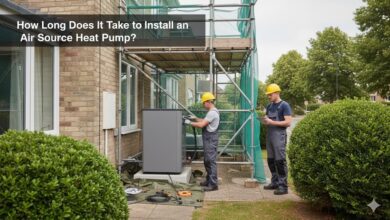UK Spouse Visa Lawyers: Common Questions Answered

Applying for a UK Spouse Visa is a critical step for couples who want to build their life in Britain. The process is demanding, with strict requirements, detailed evidence, and legal standards that leave little room for error. Here you’ll find the answers to the most common questions on eligibility, documents, costs, and the vital role of lawyers in spouse visa applications.
What is a UK Spouse Visa?
A UK Spouse Visa is an immigration category that enables the husband, wife, or civil partner of a British citizen or a person with Indefinite Leave to Remain (ILR) to live and work in the UK. It is also available to applicants whose partners hold refugee status or humanitarian protection in certain cases.
The visa grants the right to live with a partner in the UK and is an initial step towards settlement. After living in the UK for a set period on this visa, applicants can apply for Indefinite Leave to Remain and, later, British citizenship if other requirements are met. This route is different from the fiancé(e) visa, which allows entry to marry but requires a further application after marriage to remain in the UK.
What Are the Basic Eligibility Requirements?
Applicants must meet several requirements to qualify for a UK Spouse Visa:
- Relationship requirement: The couple must be legally married or in a recognised civil partnership. Unmarried partners may also apply if they have lived together in a relationship akin to marriage for at least two years. Evidence such as joint bills, tenancy agreements, and official correspondence will usually be required.
- Financial requirement: The sponsoring partner must show an annual income of at least £29,000. This can come from employment, self-employment, pensions, or other lawful sources. If relying on savings instead of income, applicants must have at least £88,500 held for 6 months in a regulated financial institution. In some cases, a combination of income and savings can be used.
- English language requirement: Applicants must show an ability to communicate in English through an approved test at CEFR level A1 or higher, or by holding a degree taught in English. Nationals of majority English-speaking countries are usually exempt.
- Accommodation requirement: The couple must show they have adequate accommodation in the UK without recourse to public funds. This means housing that is safe, legal, and large enough to accommodate all family members under statutory standards.
These requirements are strictly applied, and failure to meet even one can result in refusal.
How Long Does the Application Process Take?
Processing times vary depending on where the application is made and how busy the Home Office is at the time:
- Outside the UK: Applications submitted from overseas generally take around 12 weeks for a decision. Some visa centres offer a priority service that can reduce this to a few weeks, but availability depends on the location.
- Inside the UK: Applications for switching to or extending a spouse visa from within the UK usually take up to 8 weeks. There is also a super priority service in some cases, which can provide a decision within 24 hours.
Delays may occur if additional checks are required or if the Home Office requests further documents. Factors such as incomplete forms, missing evidence, or doubts about the relationship can all extend the waiting period.
What Documents Are Needed for a Spouse Visa Application?
The documentation forms the backbone of the application, and the Home Office is strict about the type and format of evidence provided. Key categories include:
- Identity and relationship evidence: Passports, marriage or civil partnership certificates, photographs together, travel records showing visits, and correspondence between the couple.
- Financial evidence: Payslips, bank statements, employment letters, self-employment tax returns, or evidence of savings. Each document must meet specific requirements such as covering the correct time periods.
- Accommodation proof: Tenancy agreements, mortgage statements, or letters from landlords. In some cases, a property inspection report may be advisable.
- English language certificates: Proof of passing an approved test or academic qualifications that meet the requirement.
How Much Does It Cost to Apply?
Applying for a UK Spouse Visa is a significant financial commitment. The key costs include:
- Application fee: £1,846 when applying from outside the UK and £1,258 if applying from inside the UK.
- Immigration Health Surcharge (IHS): Currently £1,035 per year. A spouse visa is issued for two and a half years at first, so applicants usually pay £2,587.50 upfront for the healthcare charge.
- Additional costs: Translation of foreign documents, property inspection reports, English language tests, and legal fees if professional help is used.
Applicants should plan carefully, as the combined costs for the initial application, health surcharge, and other requirements can easily exceed £4,000 before legal assistance is considered.
Can I Work in the UK on a Spouse Visa?
Yes. One of the advantages of this visa is that holders have the right to work in the UK without restrictions. This means they can take up employment, become self-employed, or run a business. There are no limitations on the type of work permitted, which distinguishes the spouse visa from other categories that impose restrictions.
In addition to work, applicants can also study in the UK. Access to public funds, however, is prohibited, meaning benefits or housing support cannot be claimed.
How Long Is the Spouse Visa Valid For?
The initial spouse visa is granted for two years and six months if applying inside the UK, or two years and nine months if applying from overseas. Before it expires, applicants must apply for an extension, which grants a further two and a half years.
Once five years have been spent in the UK on this visa, applicants can apply for Indefinite Leave to Remain (ILR), provided they continue to meet all the requirements. ILR is the main step towards permanent settlement and later naturalisation as a British citizen.
What Happens if My Application Is Refused?
Refusals can happen, even when applicants believe they have submitted the correct evidence. Common reasons for refusal include:
- Not meeting the financial requirement
- Providing documents in the wrong format or missing key records
- Failing to prove the relationship is genuine and subsisting
- Concerns about accommodation or maintenance
If refused, applicants usually have a right of appeal, particularly when human rights issues are involved, such as the right to family life under Article 8 of the European Convention on Human Rights. Others may be better off submitting a fresh application with stronger evidence. Professional assistance at this stage is often critical, as appeal processes can be legally complex and time-sensitive.
Read also: 7 Questions to Ask Before Hiring a Litigation Attorney
Do I Need a Lawyer for a Spouse Visa Application?
Strictly speaking, legal representation is not mandatory. Applicants can prepare and submit the application themselves.
However, the refusal rate for spouse visas remains relatively high due to errors, missing evidence, or misunderstanding of the requirements. A refusal not only leads to stress but also additional costs, as reapplying means paying the fees again. This is why many applicants turn to a spouse visa lawyer who can assess eligibility, check documents, identify weaknesses, and prepare representations to support the application. They can also advise on appeals or refusals, where legal knowledge and case strategy are essential.
For applicants with complex circumstances, such as meeting the financial requirement through self-employment, or where the Home Office has refused visas in the past, legal advice is strongly recommended.



